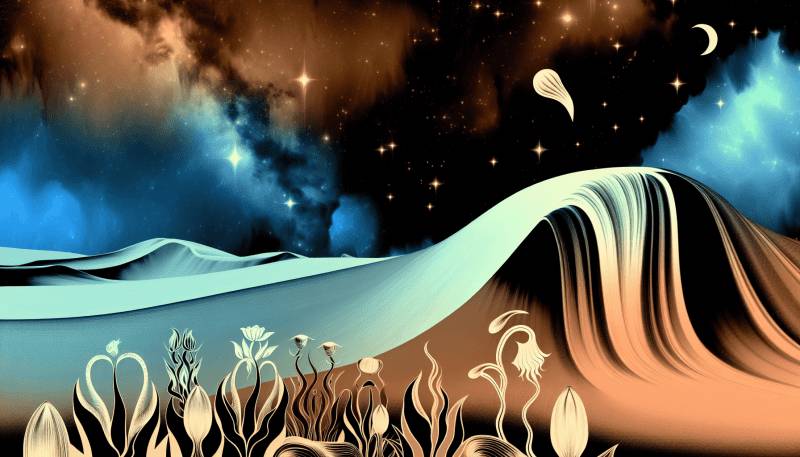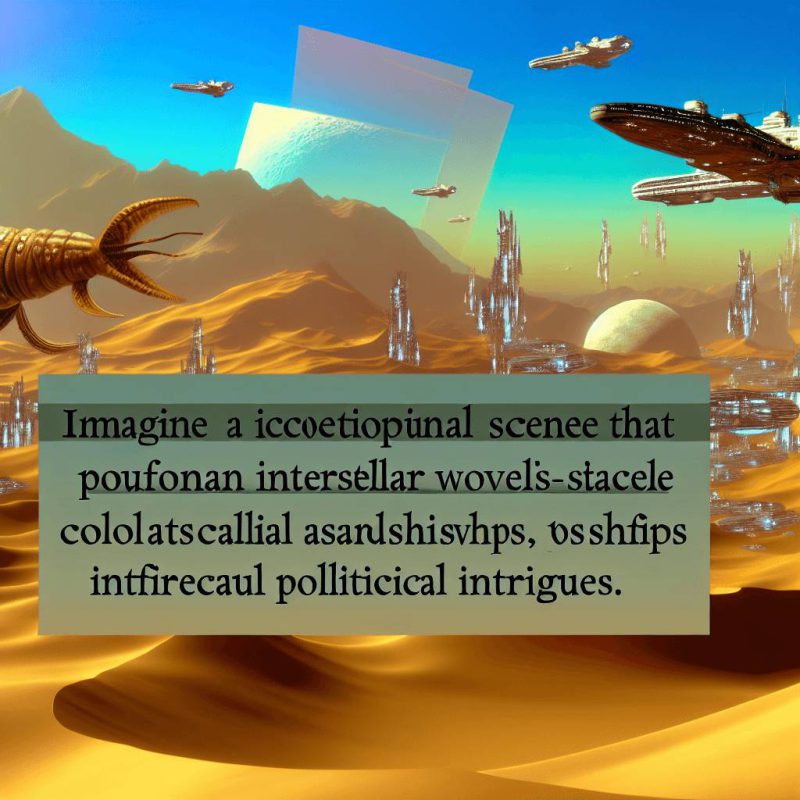Exploring the Challenges of Adapting Dune into a Film
The “Dune” debate: Could a Film Ever Capture the Novel’s Spirit?
Exploring the Challenges of Adapting Dune into a Film
“Dune,” the epic science fiction novel written by Frank Herbert, has captivated readers for decades with its intricate world-building, complex characters, and thought-provoking themes. With its vast scope and richly detailed narrative, many have wondered if it is even possible to capture the essence of “Dune” in a film adaptation. The challenges of adapting such a beloved and revered novel are numerous, but filmmakers have always been drawn to the allure of bringing this epic story to the big screen.
One of the primary challenges in adapting “Dune” into a film lies in its expansive world-building. Herbert’s novel takes place in a distant future where interstellar travel, political intrigue, and ecological concerns are central to the story. The intricate details of the various planets, factions, and technologies are crucial to understanding the complex web of relationships and power dynamics. Translating this vast universe onto the screen requires careful attention to detail and a commitment to capturing the essence of each element.
Another significant challenge lies in the portrayal of the novel’s complex characters. “Dune” is populated with a diverse cast of characters, each with their own motivations, fears, and desires. From the enigmatic Paul Atreides to the powerful and cunning Baron Harkonnen, the characters in “Dune” are multi-dimensional and deeply human. To capture the spirit of the novel, a film adaptation must delve into the depths of these characters, allowing the audience to connect with their struggles and triumphs.
Furthermore, the thought-provoking themes explored in “Dune” present yet another challenge for filmmakers. The novel delves into topics such as religion, politics, ecology, and the nature of power. It challenges readers to question their own beliefs and consider the consequences of their actions. Translating these complex themes into a visual medium requires a delicate balance between staying true to the source material and making the story accessible to a wider audience. It is a fine line to walk, but one that must be navigated to capture the spirit of “Dune.”
Despite these challenges, filmmakers have not shied away from attempting to adapt “Dune” into a film. Over the years, several directors have taken on the task, each bringing their own unique vision to the project. From Alejandro Jodorowsky’s ambitious and ultimately unrealized adaptation to David Lynch’s polarizing 1984 film, each attempt has faced its own set of obstacles. Yet, the allure of “Dune” remains, and fans continue to hope for a film that truly captures the essence of Herbert’s novel.
As technology advances and storytelling techniques evolve, the possibility of a successful “Dune” adaptation becomes more feasible. With the right combination of visionary direction, talented actors, and a deep understanding of the source material, it is not inconceivable that a film could finally capture the spirit of “Dune.” The key lies in finding a balance between staying true to the novel’s intricate world-building and characters while also making the story accessible to a wider audience.
In conclusion, the challenges of adapting “Dune” into a film are numerous, but the allure of bringing this epic story to the big screen remains. From the expansive world-building to the complex characters and thought-provoking themes, capturing the essence of “Dune” requires a delicate balance. However, with the right combination of talent and a deep understanding of the source material, it is possible that a film could finally capture the spirit of Herbert’s beloved novel. Only time will tell if the “Dune” debate will finally be put to rest.
Analyzing the Key Themes and Messages of Dune and Their Potential Translation to the Big Screen

The “Dune” debate: Could a Film Ever Capture the Novel’s Spirit?
Analyzing the Key Themes and Messages of Dune and Their Potential Translation to the Big Screen
“Dune,” the epic science fiction novel written by Frank Herbert, has captivated readers for decades with its intricate world-building, complex characters, and thought-provoking themes. As discussions about a film adaptation continue to swirl, fans and critics alike wonder if any movie could truly capture the spirit of this beloved novel. To answer this question, we must delve into the key themes and messages of “Dune” and explore their potential translation to the big screen.
One of the central themes of “Dune” is the exploration of power and its corrupting influence. The novel takes place in a future where various factions vie for control over the desert planet Arrakis, which is home to the valuable resource known as spice. As the story unfolds, we witness the rise and fall of characters who become consumed by their thirst for power. The challenge for any filmmaker attempting to adapt “Dune” lies in capturing the nuances of this theme and portraying the characters’ internal struggles convincingly.
Another significant theme in “Dune” is the ecological balance between humans and their environment. Herbert’s novel emphasizes the delicate relationship between the inhabitants of Arrakis and the planet itself. The Fremen, a group of desert-dwelling people, have adapted to the harsh conditions of Arrakis and developed a deep respect for the planet’s resources. This theme presents a unique opportunity for filmmakers to showcase stunning visuals and explore the consequences of human actions on the environment.
Furthermore, “Dune” delves into the concept of prophecy and the role it plays in shaping the characters’ destinies. The protagonist, Paul Atreides, is believed to be the long-awaited messiah figure known as the Kwisatz Haderach. This notion of a chosen one and the weight of fulfilling a prophecy adds an element of mysticism to the story. Translating this theme to the big screen requires careful attention to detail, as the portrayal of prophecy can easily veer into cliché territory.
Additionally, “Dune” tackles themes of religion, imperialism, and the clash of cultures. The novel explores the tension between the native Fremen and the ruling class, as well as the influence of religion on society. These themes provide ample material for thought-provoking discussions and allow filmmakers to delve into complex social dynamics. However, capturing the nuances of these themes on screen requires a delicate balance to avoid oversimplification or heavy-handedness.
Despite the challenges, there have been attempts to adapt “Dune” for the big screen in the past. David Lynch’s 1984 film adaptation received mixed reviews, with some praising its visual style while others criticized its convoluted storytelling. More recently, director Denis Villeneuve took on the daunting task of bringing “Dune” to life in a new adaptation set to release in 2021. With a star-studded cast and advanced filmmaking techniques, hopes are high that this new adaptation will do justice to the novel’s spirit.
In conclusion, the debate surrounding whether a film could ever capture the spirit of “Dune” is a complex one. The novel’s intricate themes and messages present a significant challenge for filmmakers, requiring careful attention to detail and a deep understanding of the source material. However, with advancements in technology and the talent of visionary directors, there is hope that a film adaptation can successfully translate the essence of “Dune” to the big screen. Only time will tell if this ambitious endeavor will be able to capture the hearts and minds of both devoted fans and newcomers to the world of Arrakis.
Comparing the Different Adaptations of Dune and Their Success in Capturing the Novel’s Spirit
The “Dune” debate: Could a Film Ever Capture the Novel’s Spirit?
When it comes to adapting a beloved novel into a film, there is always a heated debate among fans. Will the movie be able to capture the essence of the book? Will it do justice to the characters and the world that the author has created? These questions have been particularly relevant in the case of “Dune,” Frank Herbert’s epic science fiction masterpiece.
“Dune” has been adapted into various forms over the years, including a 1984 film directed by David Lynch and a 2000 miniseries by John Harrison. Both adaptations have their merits, but the question remains: did they truly capture the spirit of the novel?
Lynch’s film, released in 1984, was met with mixed reviews. While some praised its visual style and ambitious storytelling, others felt that it failed to capture the depth and complexity of Herbert’s novel. The film’s condensed narrative and the omission of key plot points left many fans disappointed. However, it must be acknowledged that Lynch’s film did manage to create a unique and visually stunning world, with its elaborate set designs and memorable costumes.
In contrast, the 2000 miniseries, directed by John Harrison, was praised for its faithfulness to the source material. The miniseries, which spanned over six hours, allowed for a more comprehensive adaptation of the novel. It delved into the intricate political and religious themes that are central to the story, and the performances of the cast were generally well-received. However, some critics argued that the miniseries lacked the visual grandeur and cinematic flair of Lynch’s film.
So, which adaptation truly captured the spirit of “Dune”? The answer may lie in the eye of the beholder. While Lynch’s film may have taken creative liberties with the source material, it managed to create a distinct and memorable interpretation of Herbert’s world. On the other hand, Harrison’s miniseries stayed true to the novel’s intricate plot and themes, but some felt that it lacked the visual impact that a film adaptation should have.
Perhaps the challenge lies in the very nature of “Dune” itself. Herbert’s novel is a sprawling epic, filled with complex characters and intricate world-building. It is a story that demands to be experienced on a grand scale, with visuals that can match the scale of the narrative. While both Lynch and Harrison made valiant efforts to capture the essence of the novel, it is difficult to fully capture the spirit of “Dune” in a single film or miniseries.
However, hope is not lost. In 2021, a new adaptation of “Dune” directed by Denis Villeneuve was released to critical acclaim. Villeneuve’s film, which is set to be split into two parts, has been praised for its stunning visuals and its commitment to the source material. Early reviews suggest that this may be the adaptation that finally captures the spirit of Herbert’s novel.
In the end, the debate over whether a film can ever truly capture the spirit of a novel like “Dune” may never be fully resolved. Each adaptation brings its own strengths and weaknesses, and it ultimately comes down to personal preference. However, with each new attempt, filmmakers continue to push the boundaries of what is possible, and perhaps one day, we will have an adaptation that satisfies even the most die-hard fans.



